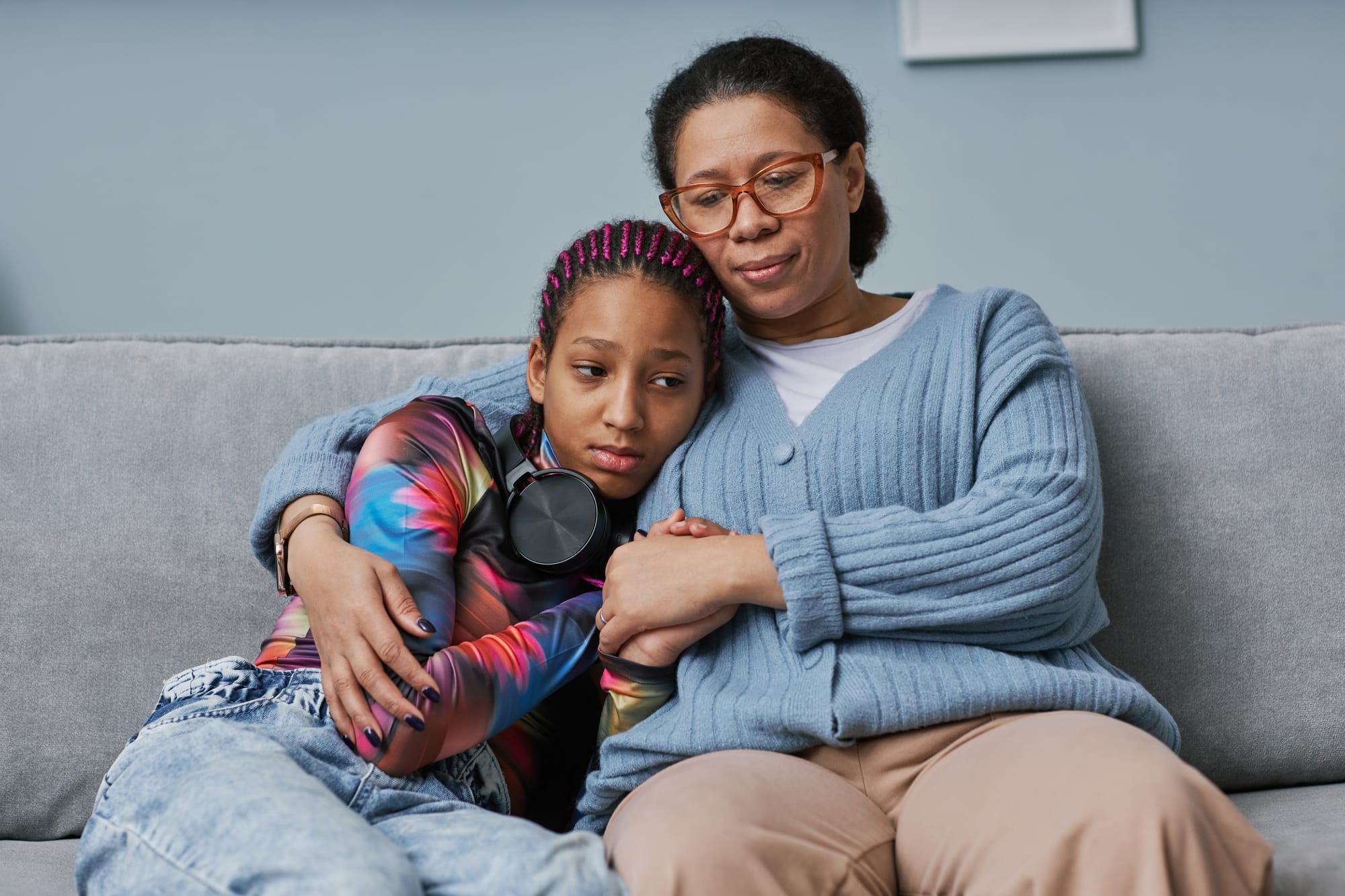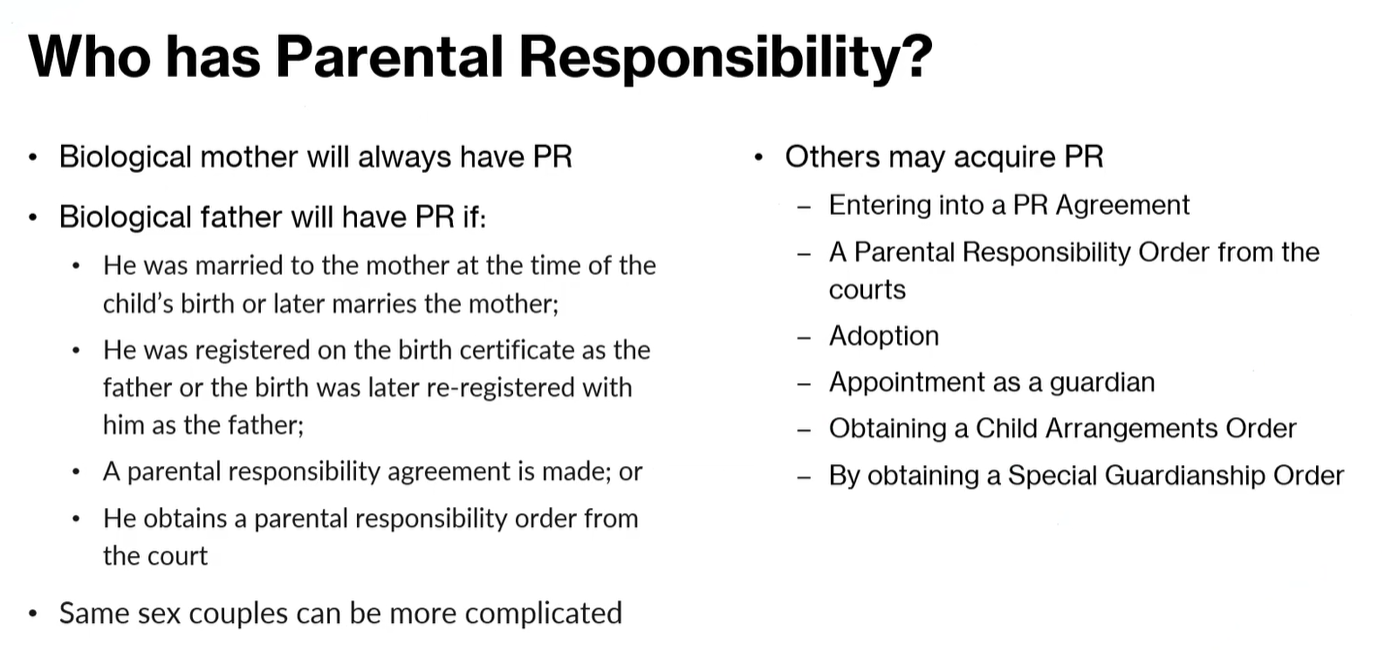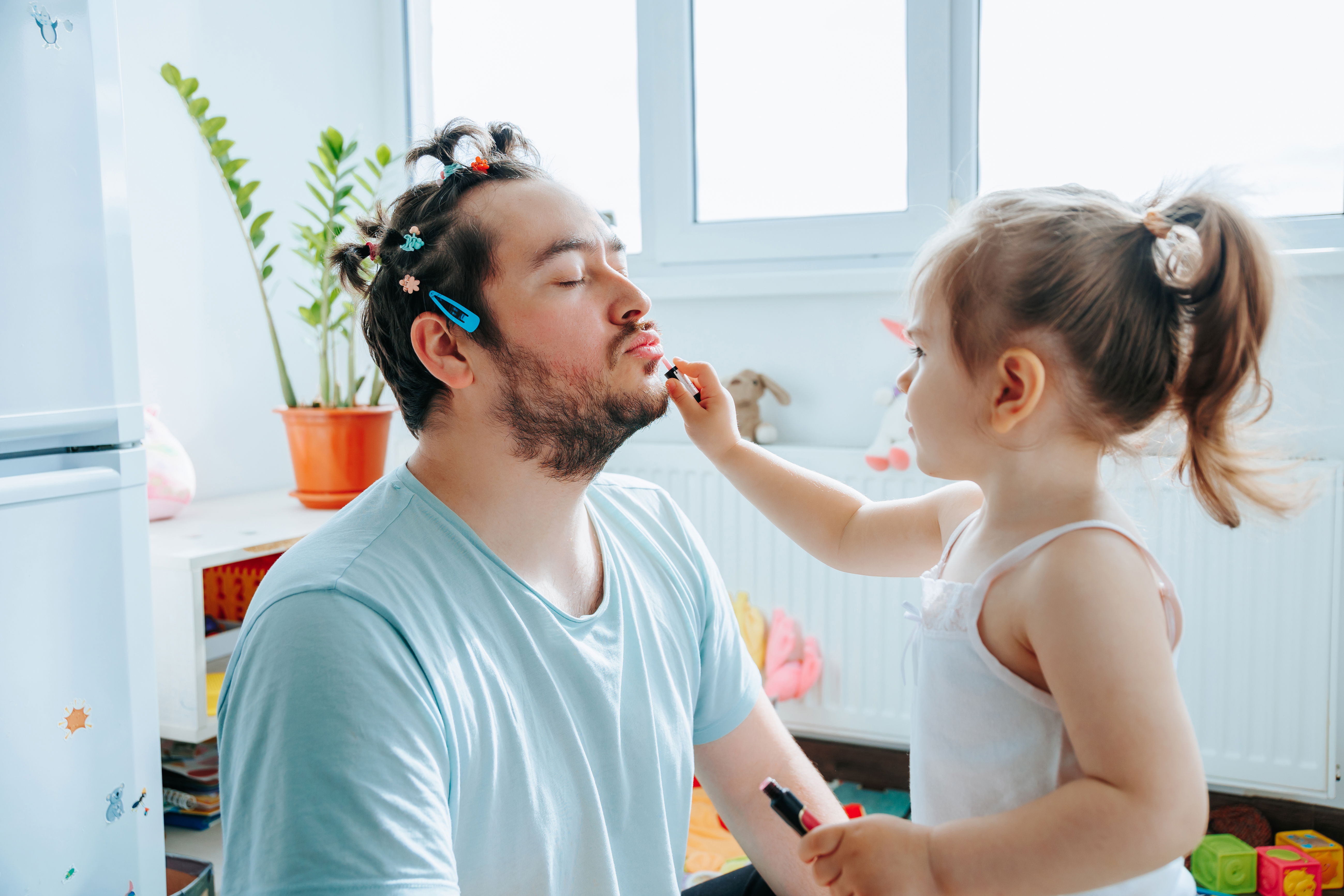Guardianship

Guardianship is where parents are legally responsible for making decisions on their child's behalf and performing duties concerning their child's upbringing. Married/ civil partnership parents are automatically joint guardians of their children. Neither separation nor divorce changes this.
The responsibilities of a guardian are similar to those of a parent, such as making decisions related to health, education, and living arrangements. By appointing a guardian in your Will, you can ensure that your children will be cared for by someone you trust and who shares your values and beliefs. If both parents pass away without a Will, in some circumstances, the legal system and courts will determine who will be the guardians of your children. However, by specifying your preferred guardians in your Will, you can have a say in their upbringing and protect their future.
A child’s Guardian is someone appointed to look after the child when no parent or other person with parental responsibility is available. A guardian is different to a special guardian. (See Government guidance on Special Guardianship).
Who has automatic parental or legal Guardianship rights?
Birth Mothers: Unless the children have been legally adopted by someone else.
Unmarried Fathers: If they were married at the time of the birth or named on the child's birth certificate.

Who does not have automatic Parental or legal guardian rights?

Unmarried Fathers: Unmarried fathers have no automatic parental responsibility if they are not named on the birth certificate. They cannot appoint guardians in their Will without establishing a parental responsibility agreement with the mother or by court order.
Aunts, Uncles, Grandparents or best friends of the parents.
Long-term carers are individuals who have lived with and cared for the child for at least three out of the last five years.
Parents of Step Children , to appoint guardians for your step-children in your Will, you must have parental responsibility for them. If you haven't been granted parental responsibility, including them in the guardians section of your Will is not recommended. Additionally, if your partner dies unexpectedly and wants you to continue raising their children, they should make you a guardian in their Will. Remember, a guardian is only called upon if no surviving parents exist. e.g. if the child's birth father is still alive and has legal parental responsibility, they usually take full responsibility, regardless of whether you are their step-father.
Remember that guardianship rights can vary based on legal circumstances and agreements.
If the birth mother wants the natural father (if unmarried or CP) to look after their child after her death, she must make a Will to appoint the father as guardian.
If everyone who has parental responsibility has died the local authority will have parental responsibility. The local authority decide whether to place the child with a relative, foster carers or in a residential home.
Choosing a Guardian.

🌿Primary & Backup Guardians: Your primary guardians are your first choice, though consider having a backup guardian if the first choice is unavailable.
🌿 Relationship: Several factors should be considered when selecting a guardian for your children. First and foremost, you want someone who loves your children, knows them well, and can provide a safe and nurturing environment. Additionally, you'll want to find someone who shares your values and parenting style and respects your wishes regarding your children's education, health, and overall well-being.
🌿Availability and willingness: It is essential to choose a guardian who is capable and willing to take on the responsibility of raising your children and has the necessary time, energy, and resources. Additionally, it is vital to consider someone likely to outlive you and be in good health. Are they willing to accept this role?
🌿 Availability & Flexibility: Parents and guardians must consider their availability whenever their child requires attention. Although children usually follow structured schedules due to their school and extracurricular activities, unexpected events can disrupt their routines. Illnesses, school closures, holidays, and summer breaks demand flexibility from parents and guardians. If their work or life schedule is inflexible, it may pose challenges in fulfilling their role as effective guardians.

🌿 Location and lifestyle: You want someone who lives in a safe and convenient place for your children and can offer them continuity and stability. You also want someone with a lifestyle and culture like yours who can expose your children to diverse and enriching experiences. It would help if you considered the impact of moving your children to a different place, school, or community and how that might affect their emotional and social development.
🌿 Legal and financial: When choosing a guardian for your children, consider their financial and legal needs. Choose someone who can manage their assets and handle any legal issues. Fern Wills & Trusts can set up a trust, a Will, and a power of attorney for your children and their guardians.
🌿 Friends & family. Many children are raised by single parents, grandparents, aunts, uncles, and guardians. Although raising a happy and healthy child on your own is possible, it can be challenging. The more support they have from trusted friends, relatives, and neighbours, the higher the chances of successful guardianship.
🌿 Compatibility: Consider whether your child gets on well with the guardian's family. Do they have children of their own? Although children may initially resist having another child living under the same roof, many quickly adjust to and even become attached to their new playmates. Are the potential guardians in a stable relationship? If so, are both equally willing to care for your child?
🌿 Health Support. Parenting can be challenging and time-consuming. However, the caregivers' demands can be enormous when the child needs additional medical, physical, mental, or emotional support. We all recognise that looking after a child for a weekend differs from looking after them for years.
Supporting Services
A Statement Of Wishes is especially important when it covers the most important things in the world. It could include all or many of the considerations above. It can be updated regularly and added to your Wills in storage. Please see the relevant section on our Services and Prices pages.
A discretionary Trust can also be used to preserve funds for a minor until they reach an age where they can manage the money themselves. The guardian and often one other trustee can oversee its distribution. Due to the discretionary nature of the trust, there needs to be more than one discretionary beneficiary, though there can be a class of people, i.e. children or grandchildren. Charities can also be named discretionary beneficiaries.



